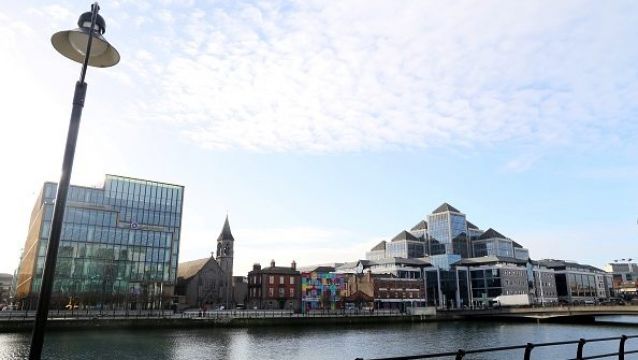The European Commission has revised up Ireland's growth forecast for 2024, increasing it to 4.9 per cent.
The executive cited the State's strong labour market and very high household savings for the increase, which "underpin further private consumption growth".
The updated data also pointed to strong foreign investment in the first half of the year, "while a slightly brighter global outlook is set to support exports".
For 2024, the Commission predicted further growth, albeit at a slightly lower rate of 4.1 per cent.
While the figures noted that energy continues to be the main driver for inflation, this has started to moderate. The Commission estimated inflation of 4.4 per cent this year, down from 8.1 per cent in 2022, and predicts it will drop further to 2.1 per cent for 2024.
"Ireland’s economic outlook remains subject to uncertainty due to trade developments related to the implementation of the [Northern Ireland] Protocol on Ireland/Northern Ireland.
"Furthermore, the performance of multinational corporations could swing growth in either direction," the Commission added.
Euro zone
The figures also showed an upbeat outlook for the Euro zone, the economic growth of which is also expected to be stronger than previously expected.
The Commission said growth in the 20 countries using the Euro was likely to be 0.9 per cent this year, rather than the 0.3 per cent predicted last November.
Euro zone finance ministers are due to discuss the outlook at a meeting later on Monday against the backdrop of very low unemployment that was hardly changed by the slower growth at the end of 2022.
"Employment in the Euro area has been incredibly resilient in face of the economic consequences of the war," Minister for Public Expenditure and chairman of Euro zone finance ministers Paschal Donohoe said.
Euro zone unemployment was 6.6 per cent in December 2022, unchanged from November and down from 7.0 per cent a year earlier.
"Overall, these forecasts point to a Euro area that has maintained its resilience, despite the incredible economic shocks of recent years," Mr Donohoe added.
Technical recession
The Commission said despite earlier concerns, the single currency area would narrowly avoid a technical recession, as growth in the last three months of 2022 was 0.1 per cent quarter-on-quarter and likely be 0.0 per cent in the first three months of 2023.
The Commission said uncertainty surrounding the forecast was high, but risks to growth were broadly balanced.
"Domestic demand could turn out higher than projected if the recent declines in wholesale gas prices pass through to consumer prices more strongly and consumption proves more resilient.
"Nonetheless, a potential reversal of that fall cannot be ruled out in the context of continued geopolitical tensions," the Commission wrote.
The executive added external demand could also turn out to be more robust following China's re-opening – which could, however, fuel global inflation, but that risks to inflation were largely linked to developments in energy markets.
Euro zone consumer inflation, which hit record highs of 10.6 per cent last October on a surge in energy and food prices caused by the Russian invasion of Ukraine, is to forecast to decelerate to 5.6 per cent this year and 2.5 per cent in 2024.
This would be a greater deceleration than the previously expected 6.1 per cent for 2023 and 2.6 per cent for 2024.
"This forecast crucially hinges on the purely technical assumption that Russia's aggression of Ukraine will not escalate but will continue throughout the forecast horizon," the Commission added. -Reuters







